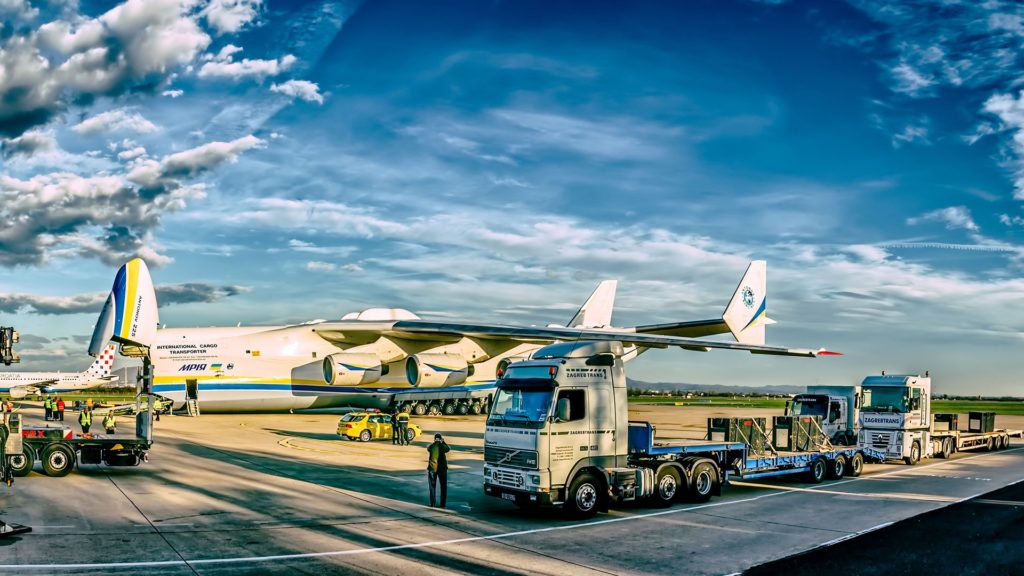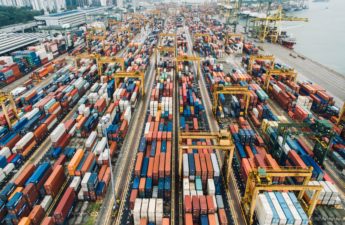Air
Freights
Services
Uncategorized

AI And Block chain, A Disruptive Integration For Freight And Logistics
Post on May 28, 2019

- The world of freight and logistics is one of the most complex known to humankind, as it involves mind-boggling challenges related to managing multiple intermediaries, transportation, fleets, warehouses, contracts, and communication channels. On top of that, freight and logistics companies have to improve operational efficiency, reduce costs, minimize damage, avoid frauds and promote transparency. These challenges have grown multifold over the years, as suppliers and retailers are in a constant race to reach their customers in the shortest possible time.
- Surely, things have improved for freight and logistics sector with increased digitization, but that, in itself, may not be enough. Digitization can improve specific processes, but it is not sufficient for accessing key insights. Present day freight and logistics companies generate voluminous amounts of data, which can be immensely useful to them. However, data in itself can be confusing and prone to manipulation, which is where disruptive tech innovations like AI and Blockchain come into perspective.
How AI and Blockchain are transforming freight and logistics?
- AI is helping logistics companies to improve operational efficiency through automation, route optimization, and better utilization of resources and capacity. AI can be used to raise red flags on data-driven dashboards, allowing managers to quickly identify a potential problem and fix it before it starts affecting the supply chain.
- AI can automatically generate a wide variety of reports, allowing freight and logistics companies to get a clear understanding about the current state of operations. As these reports are data-driven, it would help managers to take informed decisions that are likely to have a positive impact on operations. Data collated and analyzed by AI systems is also more reliable and accurate, as compared to things done manually.
- Freight and logistics companies have to deal with multiple intermediaries and this increases the risk of fraud and contractual disputes. Such occurrences slow down operations, increase costs and harm the company’s reputation. Just converting paperwork into digital files does not help reduce the risk of fraud and disputes. Disruptive technologies like Blockchain can be useful, as they are decentralized and virtually impossible to tamper with. With Blockchain, greater transparency can be achieved for contracts between various intermediaries. Source and ownership of goods as well as financial transactions can be accurately monitored with Blockchain, which will help reduce the risk of fraud.
- When efficiency is improved with AI, it helps freight and logistics companies to reduce operational costs. Optimal utilization of resources and capacity will also result in cost savings. AI can also help logistics companies to discover new sources of revenue. AI can analyze market trends and highlight opportunities that can be mined for financial gains. Some freight and logistics companies have already implemented AI and Blockchain and are reaping associated benefits. Those that haven’t may not be able to cope up with the ever increasing challenges of their rapidly evolving ecosystem. Logistics companies that have their eyes on the future will need an enterprise-wide AI and Blockchain system for optimal gains. Organizations can start with pilot projects and later move to full-scale implementation, as involved stakeholders gain more confidence about AI and Blockchain and its innumerable benefits
- As real-world information comes in many forms, AI will be able to digest text, capture images and video, take in sound, and eventually gather information about environmental conditions such as temperature, wind, humidity, etc. – This will helps to understand product temperature in cold storage warehouse and Milk run logistics for cold products. Speech-to-text technology are significantly enabling voice-driven AI. Today the comprehension ability of AI-driven voice assistants is surpassing that of humans. The key metric for measuring speech-to-text performance is word error rate; effectively, how accurately does a person or system translate and interpret the words contained in a given voice sample. This enables to maintain complete logs between various stakeholders in logistics. Creation of this avoids errors or Disputes and creates a detailed Tracker for each fleet.
- Logistics service providers often rely on vast numbers of third parties including common carriers, subcontracted staff, charter airlines and other third-party vendors to operate core functions of their business. This puts an increased burden on logistics accounting teams to process millions of invoices annually from thousands of vendors, partners, or providers. Here, AI technologies like natural language processing (NLP) can extract critical information such as billing amounts, account information, dates, addresses, and parties involved from the sea of unstructured invoice forms received by the company. Once the Data is prepared Bot can take it up and input into existing accounting software to generate an order number and execute payments and send the customer a confirmation email as well all without Human Intervention.
- Global logistics and supply chain operators typically manage large fleets of vehicles and networks of facilities worldwide. They have various stakeholders for each single line of operations. Hence it involves a lot of paperwork and contracts. From pricing Quotation, Agreements, Code of conduct and Quality Adherence. Cognitive contracts/ Smart contracts can streamline all these contracts using Blockchain and store them as one. This enables each stakeholder to review and edit changes all on real time basis. Avoiding delays and errors. The system uses natural language processing to classify any contractual clauses, policy-relevant sections, and signature portions. Paired with a human-in-the-loop to review these findings, contracts written in complex legal language often several hundred pages in length can be processed in a fraction of the time it would take a team of human experts. For Any renewals AI engine gives reminders to help and manage contact information, continually processing billions of data points to determine whether contact information is accurate and up to date.
AI and Blockchain offers logistics companies the ability to optimize network orchestration to degrees of efficiency that cannot be achieved with human thinking alone. AI and Blockchain can help the logistics industry to redefine today’s behaviors and practices, taking operations from reactive to proactive, planning from forecast to prediction, processes from manual to autonomous, and services from standardized to personalize.
Recent Post
- Freight Dictionary: Words Beginning from Letter E
- Turn Passive Data into Targeted Business Intelligence
- Transportation Management Trends— Why Developing Scalable Tech is the Need of the Hour
- Safe and Sound: Why Security of Freight Interfaces Matters?
- Freight Dictionary – Words Beginning From Letter D


